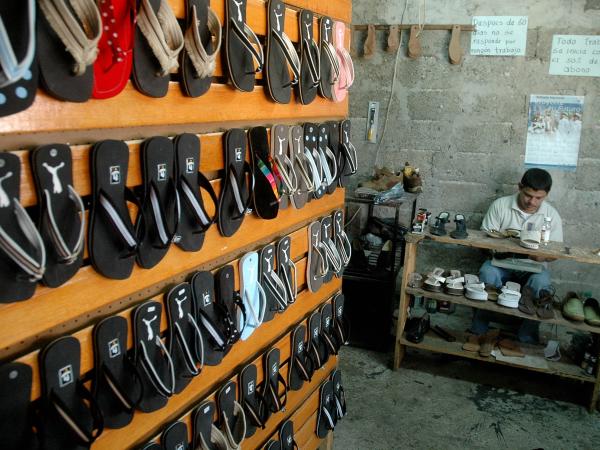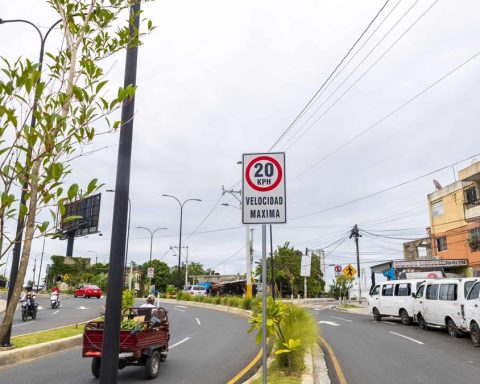Thanks to the ‘Radiography of micro-businesses in Colombia’, a study prepared by Dane in development of an institutional task that deserves recognition, we have been able to obtain a cross-section on the situation of micro-businesses after the pandemic, as well as assess its impact on the business fabric small informal sector that characterizes our economy, its evolution and perspective.
(Read: Is a recession inevitable? This is what some economists think).
Conclusions of profound significance can be drawn from the study:
-Colombia lost two hundred thousand micro-businesses during the last two years, going from 6 million to 5.8 million micro-businesses.
-More than 90% of all micro-businesses have three or fewer employees, the majority being sole proprietorships.
-Employed personnel fell by 8.7% between 2019 and 2021; remuneration decreased by 25%, profits decreased by 17.9%, according to the Dane report.
-A significant portion of microenterprises, such as large job generators, having been unable to access subsidies for reasons of red tape, non-availability of records and accounting information, and risk aversion, succumbed. As Dane Director Juan Daniel Oviedo said, quoted by the Economy and Business Editorial Office of El Tiempo: “In this biennial contraction may be part of the gap in the recovery of employment…”.
THE ‘DROP BY DROP’
Despite institutional efforts, lack of depth in legal funding to the microenterprise sector linked to the poor financial education of the self-employed and self-employed, precipitates a large group of these to the pit of the most unwanted source of resources to operate their business.
The effective rates of the lenders of the ‘drip by drip’ are up to 15 times the usury rate. According to the Dane report, unfortunately, the use of various forms of agio in the discount of checks, debt securities and the like, increased 10.5% between 2019 and 2021. It is very painful that, by contrast, the number of units companies that turned to regulated financial institutions fell 19.4 points.
NANOCREDIT
The new government will have to implement a deep microenterprise financing system . The efforts of microfinance, opportunity banking and the expansion of banking correspondents are commendable but have been insufficient in the face of the magnitude of the problem described.
The basis of transformation on this front is not repression. The The answer is educational, economic and technological. It is called Fintech, from the English financial technology. This element is changing the way we accumulate, save, invest, transfer and lend money. It refers to applications in business, adjustments in the business model, in the processes of micro-enterprises, which are achieved thanks to a combination of micro-business, technology and financial innovation.
The new Colombian nanocredit system would integrate all the existing financial offer and would add new institutions and economic groups to configure the network with the greatest credit penetration. The operations to be carried out include a minimum amount and go up to amounts that are around the minimum wage.
They are linked to the proposed strategy, development banks, opportunity banks, commercial banks and its networks of banking correspondents; also cooperative banking, savings and credit cooperatives, employee funds and mutuals; all microcredit institutions, public service companies and large stores, Banco Agrario and Baloto groups, permanent bets, transfers and remittances. The entire structure will be supported by big data, large-scale scoring, the National Guarantee Fund, the Cooperative Sector Guarantee Fund and the Agricultural Guarantee Fund. All this scaffolding would go in parallel with rapid formalization processes accompanied by chambers of commerce, unions, compensation funds and the Seine.
This proposal arose from work that we coordinated in Sergio Fajardo’s economic team. Entrepreneurs also participated. representative guilds and sectoral and territorial organizations. His approach has a place in any political program and enjoys broad public support.
INTERNATIONAL INFLUENCE
India is today great promoter of technological innovation for the democratization of credit and many other services. And who would believe it, the field of greatest growth and penetration in microbusinesses is the African continent. Of course, the regulatory framework is vital for the coordination between the telecommunications providers through which the range of services can be spread.
This agreement between the regulation, mobile telephony providers and service providers minimizes issues related to compatibility and interoperability and is consolidated with the national identification system that provides security, in our case, the new digital citizenship card. In our environment, overcoming the known problems, advancing in the crystallization of the arrival of internet to populated centersit can be a transformative instrument.
Let’s see some examples: M-Pesa in Kenya and Tanzania, the result of the alliance between Safaricom and Vodafone in 2007, has 28.3 million users and in 2012 it established the credit service that still includes a kind of lower cost overdraft.
In addition to M-Pesa, digital bank Paga is a leader in Nigeria; Orange Money operates processes in the Ivory Coast and Cameroon. The Kiva app offers nanocredit and Wizall does it in Senegal.
(Also: Colombian planes help to avoid shortages in Ecuador).
To bury the “drop by drop”, and also to stop clandestine recruitment and without support that in the name of fintech is proliferating in Colombia under detestable pyramid-type structures, the strategy we propose must reach the rural world as the service called M-Kopa does in Kenya, delivering digital credits to acquire energy panels and connectors Solar destined for homes.
JOHN ALFREDO PINTO
Former president of ACOPI

















